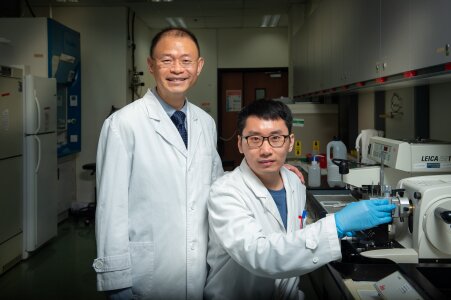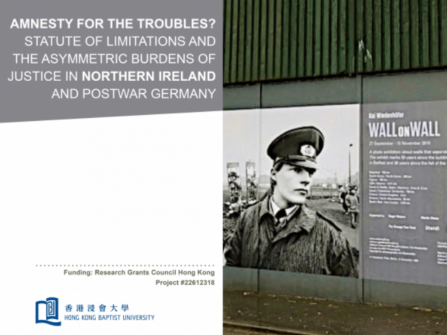- About HKBU Research{{_("Open close")}}
- Research Highlights{{_("Open close")}}
- Our Researchers{{_("Open close")}}
- Research Facilities
- News & Events{{_("Open close")}}
- Research Management{{_("Open close")}}
- RAE{{_("Open close")}}

A study conducted by a group of researchers led by Professor Lyu Aiping, Dr Kennedy Y.H. Wong Endowed Chair of Chinese Medicine, and Professor Zhang Ge, Director of the Technology Development Division, has demonstrated that the combination of leflunomide with HIF1α inhibition could attenuate bone erosion in C-reactive protein (CRP)-aberrant rheumatoid arthritis (RA). Their work was recently published in Nature Communications (https://www.nature.com/articles/s41467-019-12163-z).
Leflunomide is one of the first-line drugs used for attenuating bone erosion in RA. The well-known mechanism of leflunomide is immunomodulation through targeting lymphocytes. However, only 40-50% of RA patients show a good response to leflunomide.
In addition to immunomodulatory action, leflunomide can also activate the aryl hydrocarbon receptor (AHR) to inhibit CRP and attenuate bone erosion. Yet the leflunomide-AHR-CRP signalling was dysfunctional in RA individuals with a higher serum CRP level, leading to the limited response to leflunomide. High CRP expression upregulates HIF1α, which competes with AHR for AHR nuclear translocator (ARNT) association, and in turn limits the efficacy of leflunomide.
This study presents a precision medicine-based therapeutic strategy for RA, which is the combined use of leflunomide and a HIF1α inhibitor to attenuate bone erosion in CRP-aberrant RA. In the future, the team will explore the combination therapy of natural products and herbal drugs from traditional Chinese medicine with first-line RA drugs to spur the internationalisation of traditional Chinese medicine.
SCHOOL OF CHINESE MEDICINE




